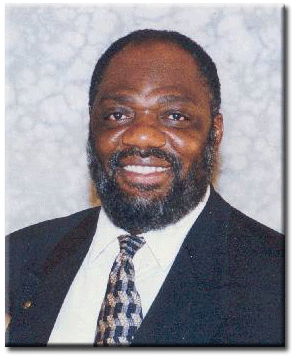
It is not an Issue of Sovereignty; it is a Matter of Future Peace, Security and Prosperity for Liberians
By Mohamedu F. Jones, Esq.
The Perspective
Atlanta, Georgia

It is not an Issue of Sovereignty; it is a Matter of Future Peace, Security and Prosperity for Liberians
By Mohamedu F. Jones, Esq.
The Perspective
Atlanta, Georgia
 |
|
Cllr. Mohamedu F. Jones
|
The question of Liberia's sovereignty does not even remotely become a subject of asking the United Nations to conduct elections. This recommendation is not proposing that the United Nations take over the governance of Liberia, but rather that the Liberian government seek United Nations assistance in the matter of elections, just as it has sought international assistance in respect to other problems in the past. Liberia, like many developing countries, seeks international assistance in those areas, and under those circumstances, where it does not have the full complement and combination of expertise and resources to meet the national needs.
Elections are no different in this respect from any other form of technical assistance. The conduct of the next elections in Liberia by the United Nations will have a far lesser effect on the country’s sovereignty (none), than the first Firestone loan, which required that an American “adviser” be placed in the Executive Mansion.
As a general principle of current international law, a country's sovereignty is not absolute in all matters. In addition, countries cede sovereignty over many matters in their interests. Even if a nations' sovereignty is considered absolute in respect to matters within its borders, international law recognized that nations may waive their sovereignty rights as they deemed proper. Adherence to any international treaty or agreement is a waiver of national sovereignty to the extent of the terms of that treaty and agreement.
By virtue of this principle, Liberia cedes sovereignty in the covered matter when it adheres to a treaty. E.g., Liberia adheres to the treaty establishing the International Court of Justice (World Court), and has agreed to abide by its judgments. The Liberian constitution permits the President to conclude international agreements (Article 57), and the Legislature to approve treaties, conventions and such other international agreements negotiated or signed on behalf of the Republic (Article 34(f), which would be the course of action that would implement a United Nations’ elections mission for Liberia.
The issue of Liberia's sovereignty would arise only if the United Nations were to act independently and decide that it would conduct the elections whether Liberia wanted it to or not. This action would clearly constitute a violation of the country’s sovereignty. On the other hand, if the Liberian government were to submit a formal request to the United Nations to conduct the elections (which is the only way the U.N. could do it in any case), then Liberia's sovereignty is not at issue. To the extent that there are sovereignty questions, the request by the government and the terms of the agreement emerging out of this request constitutes a waiver. The terms and conditions of how the United Nations would conduct the elections would be part of the agreement negotiated and approved by the government of Liberia as required by its constitutional mandates.
If the United Nations conducted the elections, it would be a win-win situation. Defeated politicians could not legitimately claim they were “cheated,” and the government of Liberia would not be required to apply the level of resources it would otherwise have to come up with to conduct good elections. If President Taylor were to win re-election under United Nations conducted elections, there would be no legitimate questions raised as to the propriety of the elections process.
A United Nations’ elections mission would commence when President Taylor and the government of Liberia formally submitted a request to the United Nations to undertake a major electoral mission for Liberia for the purpose of organizing and conducting the 2003 elections. The process is initiated when a government sends an official written request for assistance to the United Nations Focal Point for Electoral Assistance Activities (e.g. the Under-Secretary-General for Political Affairs). It is important to note that the United Nations offers this as assistance to member states. Such a mission is undertaken by mandate of the Security Counsel or the General Assembly on the basis of a country’s request.
The United Nations would assume the role now fulfilled by the Elections Commission of Liberia. There is nothing in the Liberian constitution or statutes that would prohibit the United Nations, or specific persons assigned by the UN, from being appointed Liberia’s Elections Commission by President Taylor under this process. The United Nations would then establish a system of laws, procedures and administrative measures necessary for the holding of free and fair elections, as well as the actual administration of the electoral process, e.g. the establishment of a legal framework, the registration of voters, and the proper conduct of elections in accordance with Liberia’s constitution and international democratic norms. The Supreme Court of Liberia would, however, retain its appellate jurisdiction as required by the constitution.
Liberia’s sovereignty will not be at issue if President Taylor were to request United Nations’ assistance to conduct the next elections, just as it never is when Liberia requests other forms of assistance. Rather he would be offering an opportunity for peace, security, and prosperity to the people of Liberia, something we have not known for close to 25 years. Our national sovereignty would be strengthened and present more value to the people. National sovereignty under the current circumstances in the country is empty and of no value to the nation and people. But more importantly, national sovereignty is never in question when a member of the United Nations requests the organization for assistance in meeting a national need.
